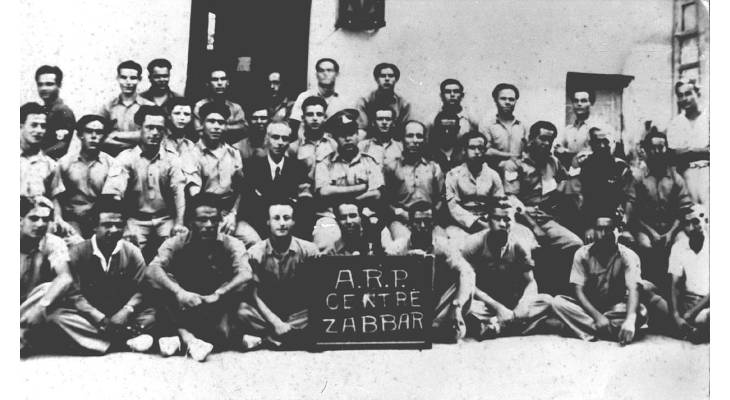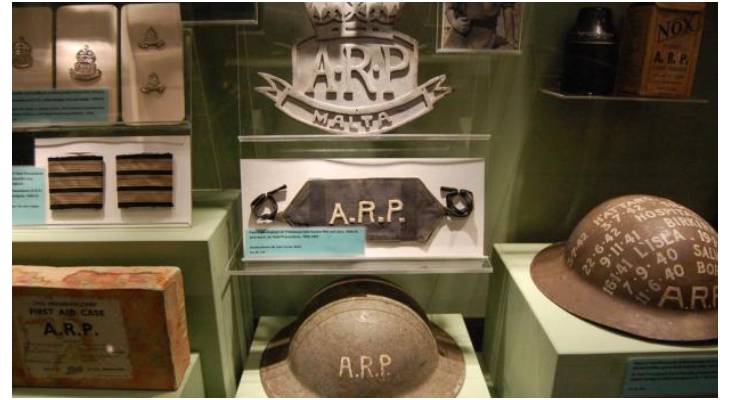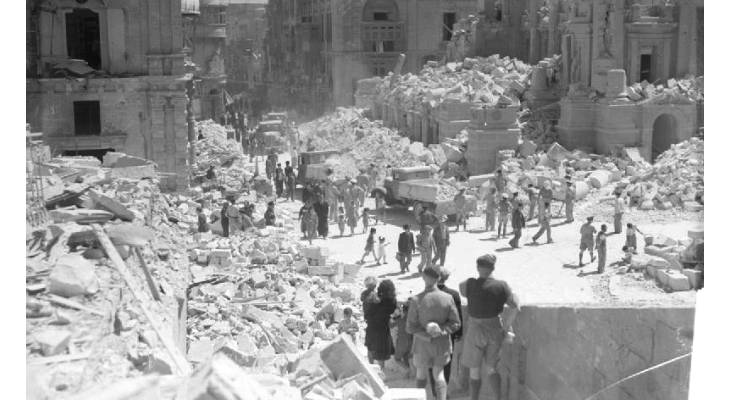To help them stand out, ARP members would wear helmets marked with a big ‘W’ at the front.
Despite the island’s tiny size, Malta was the most bombed country in the whole world during World War II.
The Axis’ air raids saw thousands upon thousands of buildings come tumbling down as countless lives were tragically lost.
To keep up with the constant bombing, the British set up ‘Air Raid Precaution Units’ (ARPs) throughout their colonies – an incentive which ended up saving many from the jaws of death…
How did ARP members help?
Perhaps one of the most notable duties assigned to ARP members was patrolling streets at night to ensure that no lights were visible. This helped decrease the likelihood of Axis forces bombing the islands.
The ARP also consisted of a number of medical professionals who would rush to help any civilians injured by air raids. These guys had the unpleasant task of silencing agonising cries for help from victims buried underneath rubble.

Credit: maltagc70.wordpress.com
Additionally, ARP members would also help organise people in underground shelters to prevent injuries and deaths from overcrowding.
After the end of an air raid, ARP members would help civilians reunite with any loved ones they would have gotten separated from during the bombing.

Credit: first2board.com
To help them stand out, ARP members would wear helmets marked with a big ‘W’ at the front.
Where could you find ARP bases?
Air raids affected pretty much every location around the Maltese islands. Because of this, ARP bases were always close at hand.
These are all the locations that, at some point or another, were home to an ARP base:
- Attard
- Auberge de Baviere, Valletta
- Cospicua, however this was transferred to Zabbar in January 1941
- Cisk Brewery Laundry, Hamrun
- Floriana
- Lyceum, Valletta
- Marsa
- Mosta
- Msida
- Qormi
- Rabat
- Sliema
- St. James Cavalier
- Tarxien Government School
- Tarxien Oratory
- Zabbar
- Zurrieq
- Public Shelter, Mina s-Sewda, Valletta

Credit: wikiwand.com
Valletta was home to multiple ARP bases due to the fact that it was on the receiving end of very frequent attacks. Interestingly enough, no ARP centres were established in Gozo – even though many Gozitans were injured or killed during air raids.